Facebook couldn’t happen today.
It’s the last great tentpole, unless something about our culture fundamentally reverses, and there’s nothing in our data – or my realm of imagination – that suggests otherwise. Ironically, the inevitability of that statement might be attributable to Facebook more than anything else. The same platform that connected us also helped to divide us.
But TikTok, you say. Sure, it remains all the rage – for the less than one-third of Americans who regularly use it. TikTok isn’t really “social,” anyway. It’s like YouTube, only for people with shorter attention spans.
Instagram is slightly more popular and more social, but still well below half. Also, it’s Facebook’s sister, so that’s an asterisk.
Facebook’s other younger sibling, Threads, proves my point. Everything about Twitter, from its rapidly declining brand favorability to its deteriorating user experience to its unfathomable decision to rebrand, led you to believe it was vulnerable to a wholesale replacement. Threads’ interface is nearly identical. And, it had Meta’s resources and built-in audience as a cheat code. Surely it would win.
Have you been on Threads? You’re in a tiny minority, like me, if you have. Spend ten minutes on the platform and you’ll realize it’s little more than a migrant camp for left-leaning Twitter refugees. It’s a safe space for Elon Musk haters, fulfilling its own prophecy by ensuring that only the most antagonistic right-leaning users will ever wade into its waters.
Twitter remains the (net) superior experience – which isn’t saying much – only because there’s more action there. You just need to hold your nose a little while you do it.
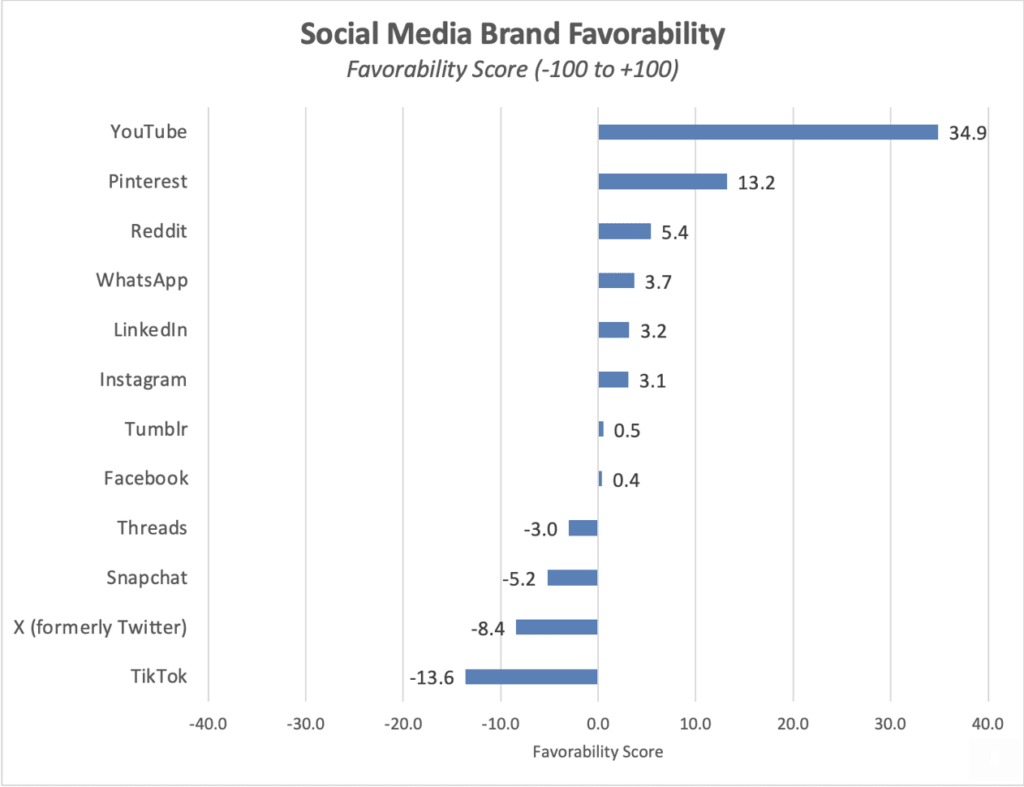
Facebook came along at a singular moment in history, when Internet adoption was reaching ubiquity and competitive alternatives were near zero. More importantly, it was pre-tribalism. Few of us knew the deepest political proclivities of our friends, until we were thrown in a sandbox where those views were on full display. Enter Russian troll farms, fear-preying algorithms, outrage-stoking politicians, and click-chasing media outlets. The toothpaste of political discord was out of the tube forever.
Americans are now trained to seek out affirming content and communities. When confronted with something new, we quickly ascertain whether we’re in a room of “our people.” If yes, we stay. If not, there are plenty of other rooms to choose from.
We don’t want unity anymore. We just want everyone to be like us.
Here’s what we’re seeing:
On the actual bright side, consumer confidence stopped hemorrhaging for a minute. After freefalling for three consecutive readings, our Economic Sentiment Index rebounded modestly over the past two weeks and I honestly can’t tell you definitively why. Economists would tell you it’s because they boosted their GDP forecasts, but most consumers don’t even know what that means. Nonetheless, our Index was carried primarily by a big jump in Americans’ 6-month outlook for the overall economy. I don’t entirely share their exuberance at the moment, but we won’t let that get in the way of a good headline.
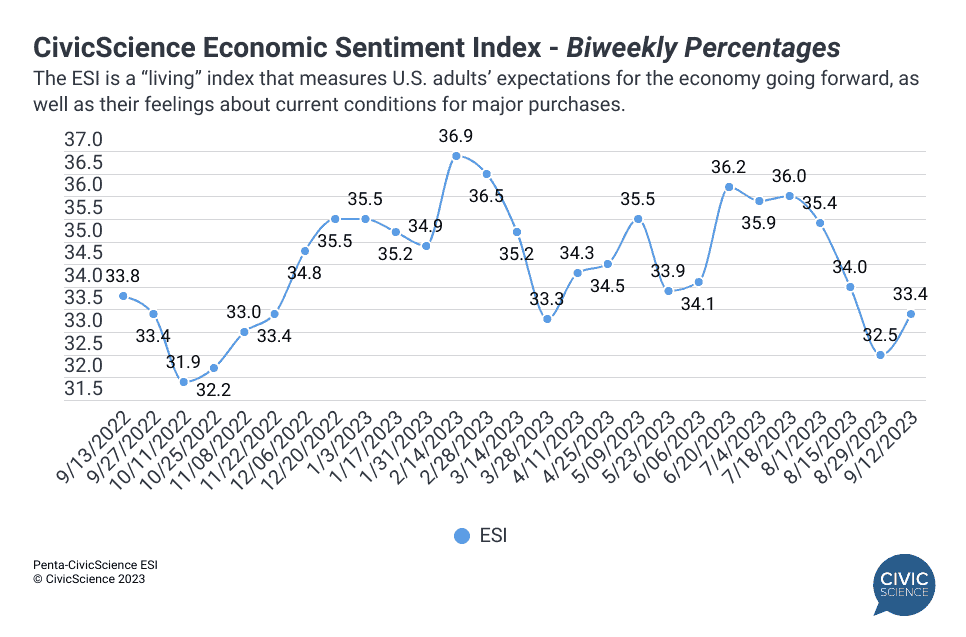
The student loan payment reckoning is nigh. Part of my muted economic enthusiasm is grounded in the unwelcome return of student debt obligations hurtling toward us next month. To compound the problem, all that rising credit card debt you hear about significantly over-indexes among student debt carriers. Fifty-eight percent of student debt holders are at least somewhat concerned about making their payments – the same percentage we saw when the date was announced in July. Every major spending category is seeing intended cutbacks among debt holders, with dining out and apparel at the top of the list. Personal care is holding relatively strong, as consumers – particularly female consumers – cling to well-being categories.
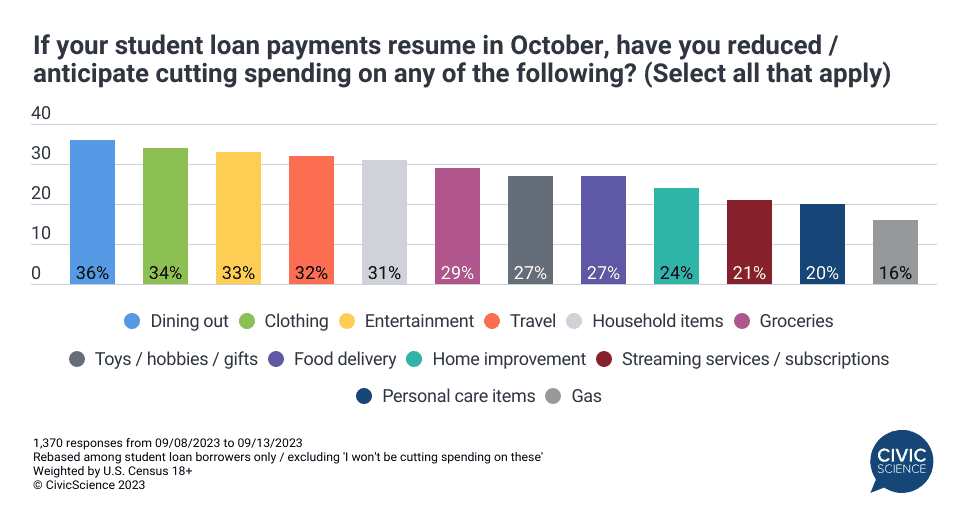
We may need to classify iPhones as a well-being purchase too. In the wake of Apple’s latest annual product launch party, 21% of U.S. adults say they’re at least ‘somewhat likely’ to purchase the new iPhone 15 in the next six months. Six percent are ‘very likely.’ These numbers are remarkably consistent with the intent we’ve seen in years past. Considering that these professed intenders significantly over-index as being concerned about returning student loans, it’s either wishful thinking or financial hubris. It has all the markings of wellness-seeking commerce. A new, status-symbol phone makes us feel better – especially when we’re not stressing about the battery going dead.
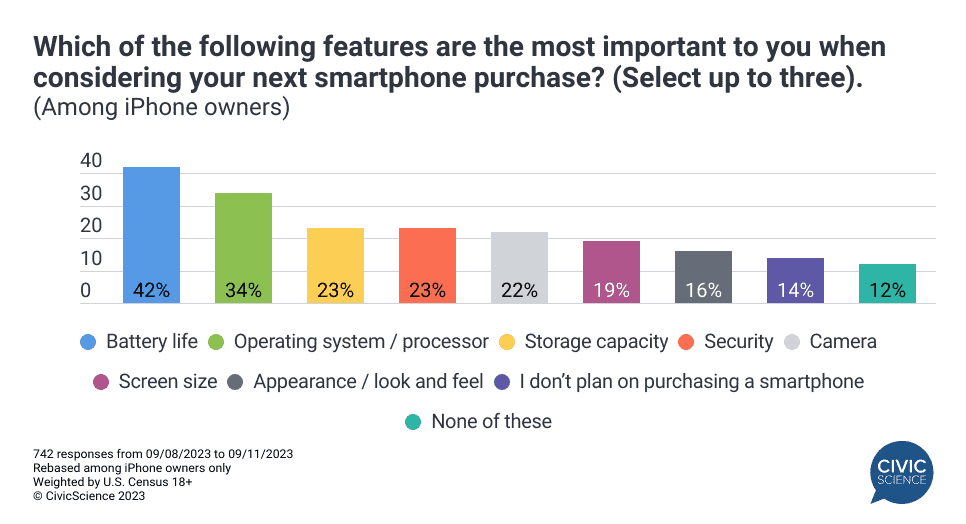
Just over 1/3rd of U.S. adults (+1) are serious about getting the new COVID booster. When the FDA announced its approval of the latest round of COVID vaccines on Monday, we quickly gauged America’s response…suffice to say it was underwhelming. Only 37% of respondents say they’re very likely to get pricked (or already did), with another 17% saying they’re somewhat likely. Contrast that with the flu vaccine – 49% say they’re very likely or already got one. Another 15% are thinking about it. All I know is I play golf with the head of infectious diseases at one of the best health systems in the world and he’s getting them both (thus, so am I). Medical science has a PR problem.
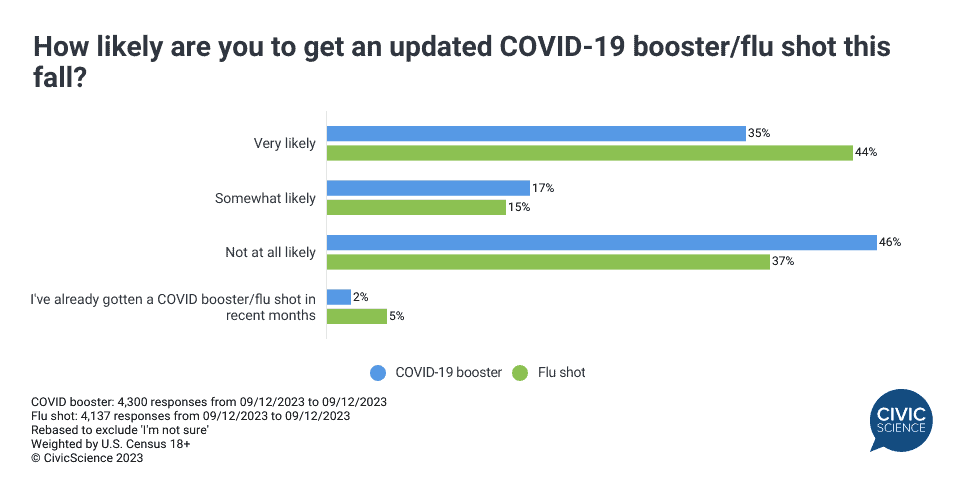
People want to live in communities that share their values. A convenient bookend to my intro rant, our 3 Things to Know this week, we examined how Americans prioritize living in areas where the laws and norms align with their values (think abortion rights). In short, it matters a lot, particularly to Republicans, even more than job opportunities. We also looked at the importance of original programming (versus catalogs) when people evaluate streaming platforms and a heart-warming boost of consumers saying they plan to shop at local and independent retailers this holiday season.
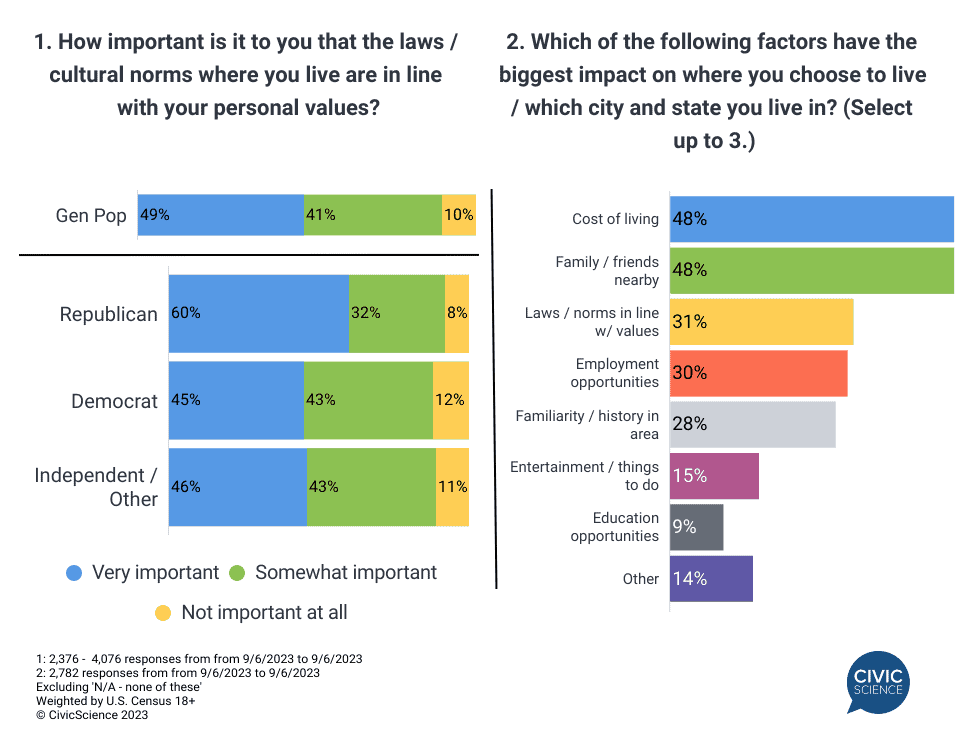
More awesomeness from the InsightStore™:
- Instacart is in user limbo and the current financial climate isn’t helping;
- U.S.-brand car intenders are the most worried about the UAW strike;
- Intent to buy gift cards this holiday season is up YoY, driven by convenience;
- People (especially younger ones) are dipping into their retirement funds early;
- ChatGPT users are more likely to list their homes for sale and 4 other unexpected correlations.
The most popular questions this week:
How often do you say the phrase, “It is what it is”?
Do you tend to add salt or pepper to your food before tasting it while at a restaurant?
Do you personally believe there is an afterlife?
Would you say your hair-styling skills are advanced, intermediate, or beginner?
Answer Key: More than average; Only cracked pepper on a Caesar salad; I don’t even know how to answer this; Yes; I did several years of braids, so intermediate.
Hoping you’re well.
JD
Not on the list to receive this email every Saturday? Sign up here.








